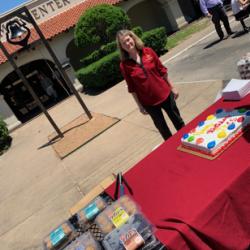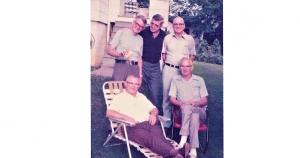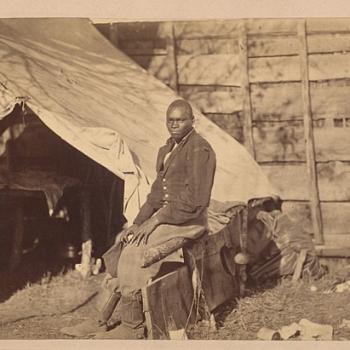At nine or ten my pastor father (Father Father) talked to me about God and doubt.
“I believe,” this honest man said, “but sometimes I doubt. Never be afraid of doubt.”
I remember church services in West Virginia forty years ago when men born when William McKinley was an up and comer and there were no world wars woud testify of moments of doubt and how God had “pulled” them through. The Jesus People of my early childhood often came from atheism to Christianity.
I mention this because a new poll shows that a larger number of young adults have caught up with the old men and women of West Virginia and say that they “sometimes doubt God’ existence.”
This is taken as a sign of secularism, but I take it more as sign of linguistic change and of the advance of Christian philosophy. In some parts of America saying you “doubted” a thing was equivalent to saying you did no believe it. That wasn’t true of my social circle, but I discovered it was true of other friends when I went to college.
They would “wonder” about God, but not “doubt” Him. Doubt, for them, meant abrasive and irrational skepticism, a kind of mental depression. Similarly my friends used “happy” to mean superficial pleasures and claimed Jesus did not make them happy, but gave them joy. This odd vocabulary still exists in many of my students, but though “happy” has not been rehabilitated “doubt” has.
In fact, most of my students rightly believe that to not doubt is to be irrational or to have false pride. We after all believe by faith, a knowledge, but not a certain knowledge. Why the change?
Over the last few decades there has been a boom in Christian philosophy, apologetics, and higher education. This has, I suspect, been part of bringing the word “doubt” back into favor (though I still use “wonder” with many older groups). Any good teacher presses his students to wonder . . . about God, about atheism, or about any number of things.
This only secularism in the bizarre world where “reason” is “secularism.” Reasonable Christians, no matter their education talked about mental struggles, but they did not always use the term “doubt.”
It is certainly true that young adults do not wish to be associated with the sins of their parents, but this was an old phenomenon around the time when Socrates was killed for corrupting the youth. Christianity is not, for the moment, cool, but the vast majority of American young adults still associate themselves with Christianity.
Those of us who have never been cool are glad to not have to pretend!
Thank God we no longer have as large a problem (as we did when my Dad was a boy) with people thinking that they must be Christians, because they were not Jewish and were Americans. We are more thoughtful now and that is partly due to the yeoman work of thinkers such as J.P. Moreland and Nancy Pearcey.
Secular writers don’t know that an apologetics conference is going on somewhere every week in America. In short, I see little evidence that the decline of Christianity in this generation, proclaimed every few years since I was a kid, is happening. Studies showing more “doubt” are not helpful. The simpler explanation is that apologists are having a good effective and that word usage is changing.
The old Christian with tears streaming down his faith trust “he would go in” was not secularizing as he expressed his uncertainties and neither is his tattooed great-granddaughter when she attends Wheatstone Academy and learns Socratic questions.












